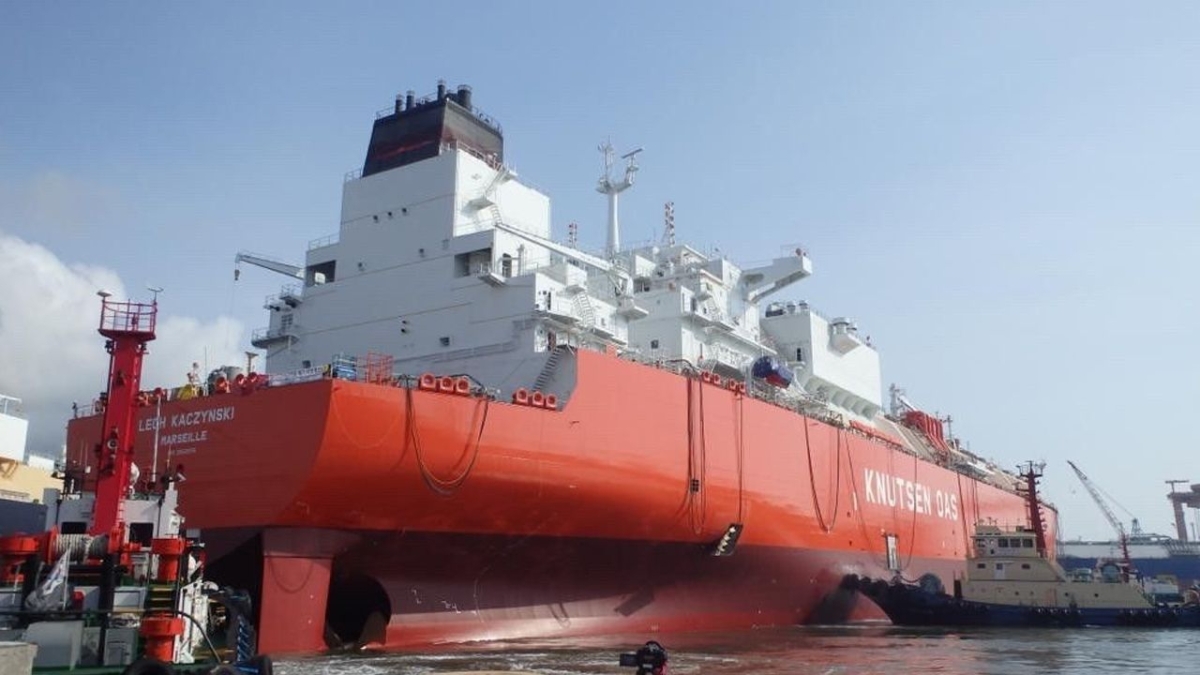
At the Ulsan shipyard in South Korea, the first two LNG carriers built for the Orlen Group by Hyundai Heavy Industries were ceremonially named.
The first LNG carrier, named Lech
Kaczyński, is now ready for operation. The second vessel - Grażyna
Gęsicka - will enter service in 2023. Orlen has ordered eight
methane carriers in total. They will be owned by the Norwegian
company Knutsen, while the Polish company will use them on a
long-term charter basis.
The London office of PST (PGNiG
Supply & Trading) manages LNG purchases. As Ireneusz Łazor
explains, in the structure of transactions on the LNG market, a
number of other costs are added to the price of gas. "A very
significant cost is generated by transport. It can either
significantly improve the economics of the entire transaction, or
even reduce its profitability, or even cause losses. Having our own
LNG carriers allows us to effectively manage a number of costs
associated with the transport of gas, which are often decisive for
the profitability of such transactions" - he emphasizes.
Initially, PST purchased gas in the
DES (Delivered Ex Ship) formula, where all costs are under the
control of the seller, the buyer only pays the price set by the
seller for delivery to the indicated point - the LNG terminal. For
several months, it has also been conducting FOB (Free On Board)
transactions, where cost management is already on the part of the
buyer.
The Orlen Group has FOB contracts
with Venture Global in its portfolio, signed in 2018 and annexed in
2021, when it was agreed to increase the volumes of deliveries from
American terminals in the Gulf of Mexico: Calcasieu Pass and
Plaquemines. The first contract provides for the collection of 1.5
million tonnes of LNG annually from 2023, the second - 4 million
tonnes of LNG annually from 2026 at the earliest.
As Ireneusz Łazor reminds, the
daily prices of chartering a ship are significant and depend on many
factors. He emphasized that in spot transactions before the outbreak
of the war in Ukraine, it was about of 60,000 dollars daily. At the
price peaks after the outbreak of the war, it was even 300-500
thousand dollars daily.
- Having your own ship, you can
also effectively manage other costs - vessel and cargo insurance,
port costs, an auditor who confirms what has been loaded and
unloaded. Having our own transport, i.e. its cost under control, we
can effectively manage purchases - added the head of the London
office.
Łazor assessed that the most
important advantage of having own ships is the ability to decide from
where, where to, when and how quickly the cargo will be delivered.
- Not always sailing fast, it comes
out the most economical. So we have a special team that calculates
all these parameters on an ongoing basis and as a result the captain
receives instructions on what to do. We can decide on an ongoing
basis where a given vessel is sailing, we have the freedom to act and
the ability to decide what to do. With today's costs and margins, the
impact of these various additional factors can be critical to the
profitability of a deal. That's why it's worth having transport on
your side - he stressed.


